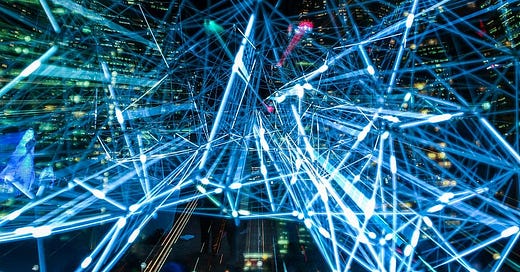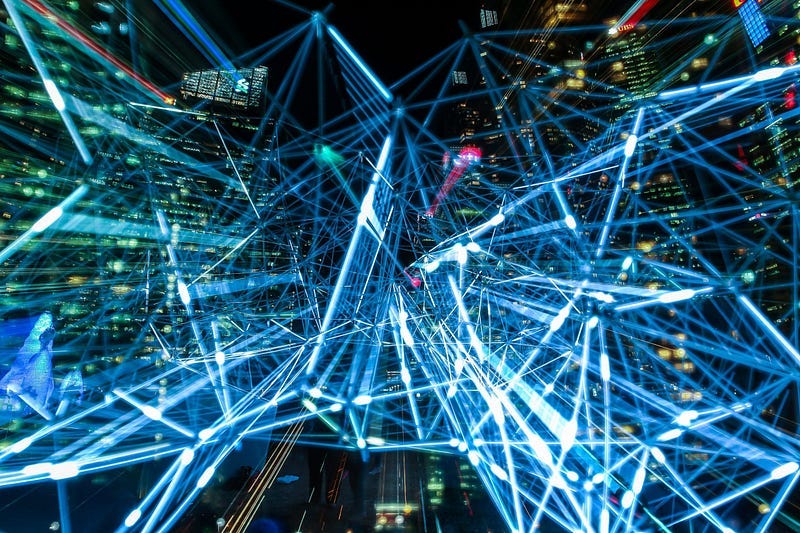Could The Future Of Music Composition Be AI? Analysing The Implications Of AIVA — An AI Composer
At the crossroads of my life as an engineer, entrepreneur & musician and applying and using technology for music, it’s essentially been a…
At the crossroads of my life as an engineer, entrepreneur & musician and applying and using technology for music, it’s essentially been a long learning curve.
When I was studying for my under-graduation degree in IT at MIT, Manipal, and now 10 years later as an upcoming musician, it’s been nearly two decades of my life being exposed to music, different genres, different styles, listening and forming influences, notions, ideas, etc.
I’ve only been playing instruments, i.e the guitar and piano for five years, and exploring my own musical creativity as a singer-songwriter & as a producer and composer for two years. But what took me the majority of my life when it comes to music, can now be replicated by technology (specifically AI) which can reduce that learning curve and time to a few hours. It’s scary.
Manipal is a small, quaint college town in the South Of India, where I got my first part-time job as a resident in-house DJ at the most happening pub in the township. I played the music on a PC console, making playlists on WinAmp(Shoutout to ’90s kids) and making sure the crowd had an electric time each night.
I played everything from classic rock, to alternative rock, grunge, hip-hop, trip hop and emerging electronic music at the time; this was 2008–2011. Like that Mark Knopfler song that makes me reminisce about those years goes, “Laughs, & jokes, & drinks & smokes…..We were young, so young, and always broke, not that we every cared.”
That’s one of my favourite Mark Knopfler songs and I love how simplistic & beautifully crafted the lyrics are and how they take me back to those forgotten years of my youth, as the DJ of the pub and having a great time setting the grooves and mood each night for all the pub goers to enjoy.
That’s where AI can’t come close. AI can’t create emotion & meaning, to create lyrics & write songs that are based on human life experiences. When it comes to songwriting, AI pales in comparison to humans, because we have real experiences, and memories, and ideas and emotions, and not data sets.
This is Mark Knopfler, perhaps the most essential musician and guitarist of all time.
But, on the other hand, when it comes to composing music, just a piece of music, with no lyrics, that’s where AI starts to get really formidable.
I recently stumbled upon this post by The Algorithmic Bridge, from Medium writer Alberto Romero, where he talks about an AI composer called AIVA.
As he writes,
“AIVA was born in 2016 after its creator, Pierre Barreau, had an epiphany watching the sci-fi movie Her. As Barreau revealed in a TED talk in 2018, the above scene — which the director Spike Jonze qualified as the “toughest” he wrote — inspired the creation of AIVA (Artificial Intelligence Virtual Artist), the first AI composer.
He wanted AIVA to become the natural continuation of the technological process that changed music forever: the availability of recordings allowed people from anywhere — and anywhen — to listen to the finest interpretations of the greatest musicians — an experience that not long before was reserved for the upper classes.
Barreau wanted to bring those advances to the next level.
He and his team, comprising engineers and musicians, envision AIVA as an innovation to compose customized music, tailored for you and me. “Our vision at AIVA [is] to personalize music so that … every individual in the world can have access to a personalized live soundtrack, based on their story and their personality.”
If you give the demo a listen, it’s really interesting how AIVA has crafted this piece of music, which is rather good considering it’s from a computer program.
How AIVA Works
AIVA was envisioned by musicians & engineers, and they wanted to push AI technology to see what it could do musically. AIVA is like all other AI, it learns from datasets. So input the greatest pieces of music & a wide range of scores to learn from, which the developers used while developing AIVA, and voila, they have enabled it to create interesting pieces of music in far quicker time than it takes humans to do the same.
As explained in the The Algorithmic Bridge
“AIVA has been trained on a huge dataset. What makes it unique is that it learned an ability we thought was limited to only a few gifted — and well-trained — humans. AIVA studied “over 30,000 scores of history’s greatest,” extracting patterns from musical pieces of the likes of Mozart and Beethoven to hone its craft.
The training objective was straightforward. Given a set of notes from a track, AIVA had to predict the notes that came next. Once it excelled at the task it seemed to be able to create original pieces using abstract, underlying mathematical rules that live at the heart of musical genius.
Learning how to make a beautiful, polished piece fast and precisely takes human composers decades of dedication and hard work.
AIVA can reduce that learning process down to a couple of hours.”
AI can’t create innately, it relies on datasets and past examples of music to formulate its scores.
Unlike humans, AIVA can only learn from the styles it has seen (strictly speaking we do, too. But AI’s ability to extrapolate and generalize is extremely limited compared to ours). To grant AIVA the capacity to exploit the subtleties that govern musical creation, the team classified the scores. Mood, style, note density, or epoch are some of the over 30 tags with which they labeled the pieces. AIVA could then use these tags to generate a Chopin-style Concerto heavily charged with sad tones.
So essentially, it’s feed the AI with examples & musical data and watch it morph them into its own pieces of music. So what you’re getting isn’t the brainchild of a musician who has created something from scratch based on the ideas in his/her head, but a reproduction of some of the greatest composers and musicians in the AI’s learning algorithm.
Can AI create An Emotional Response?
I’m rather on the fence with this one. I believe that music created by humans is the only kind of music that can stir and move people. However, that’s very subjective from person to person, as Romero writes
While I was writing this article, and repeatedly during the last few days, I’ve found myself wanting to listen to AIVA. What’s that if not what our favorite human music makes us feel?
Is it weird that an emotionless non-sentient computer program can trigger a powerful emotional reaction? Maybe we’re simply not accustomed to it. In sharing our creative genius with complementary AI tools we may find the ultimate sensations music can provide. Paraphrasing Pierre Barreau: AI can create beautiful pieces of music that humans can bring to life. That’s what AIVA could provide; an easy, efficient, and affordable way to bring the best out of one of the most universal joys in life; music.
AI Technology Is Here But Replacing Humans Entirely Seems Unlikely
As I’ve mentioned previously, that emotional connect and writing music from life experiences and so on, can’t be automated, especially when it comes to music with lyrics & emotion and feeling. So musicians who write lyrics and play instruments aren’t going anywhere, for now at least.
However, AIVA can certainly fill the gap in certain aspects of music. Like providing music when film composers have writer’s block or perhaps to provide a soundtrack to a 200 hour videogame, or certain parts of a movie score or for commercials, events or short videos people use on social media. And it’s very useful especially for people who can’t create music themselves and can’t afford to hire musicians and composers and need unique music for their custom YouTube videos, or as beginner filmmakers and other such creative aspects.
When it comes to a film score, I’m a pretty forward thinker, and I often tend to use VSTs and software and push them to do the things I can’t. So using AI to fill in gaps and in certain parts of the film where I’m rather lost in creating something, can be pretty valuable. Creating themes in film composing is also something a lot of composers thrive on, but in case of short time-frames to create scores, and if as a composer, your noodling is going nowhere, AI like AIVA can come in to expedite the process.
Technology is there for a reason, although it’s rather frowned upon when it comes to the art form of music, as I’m sure old school composers & musicians would agree; it’s something that they would really detest.
However, we’re entering the new decade and making the most of technology, as Radiohead frontman Thom Yorke suggests in an interview I covered, “The technology you use, and how you use it are very much a part of your art”.
So as a relatively young musician & composer, I’m totally for leveraging technology to assist me in my process, but only occasionally and in certain instances & moments, which is why AIVA isn’t such a bad idea.
In the end, that human element and human touch to music will never die and the connection we feel with music created by musicians is certainly going nowhere, but for practical uses and to assist in the process, AI can certainly add a bit of its musical capability to a piece of music created by musicians who embrace the technology, which is why the interjunction of music and technology seems to keep expanding in ways we could never imagine as we head into the future.




